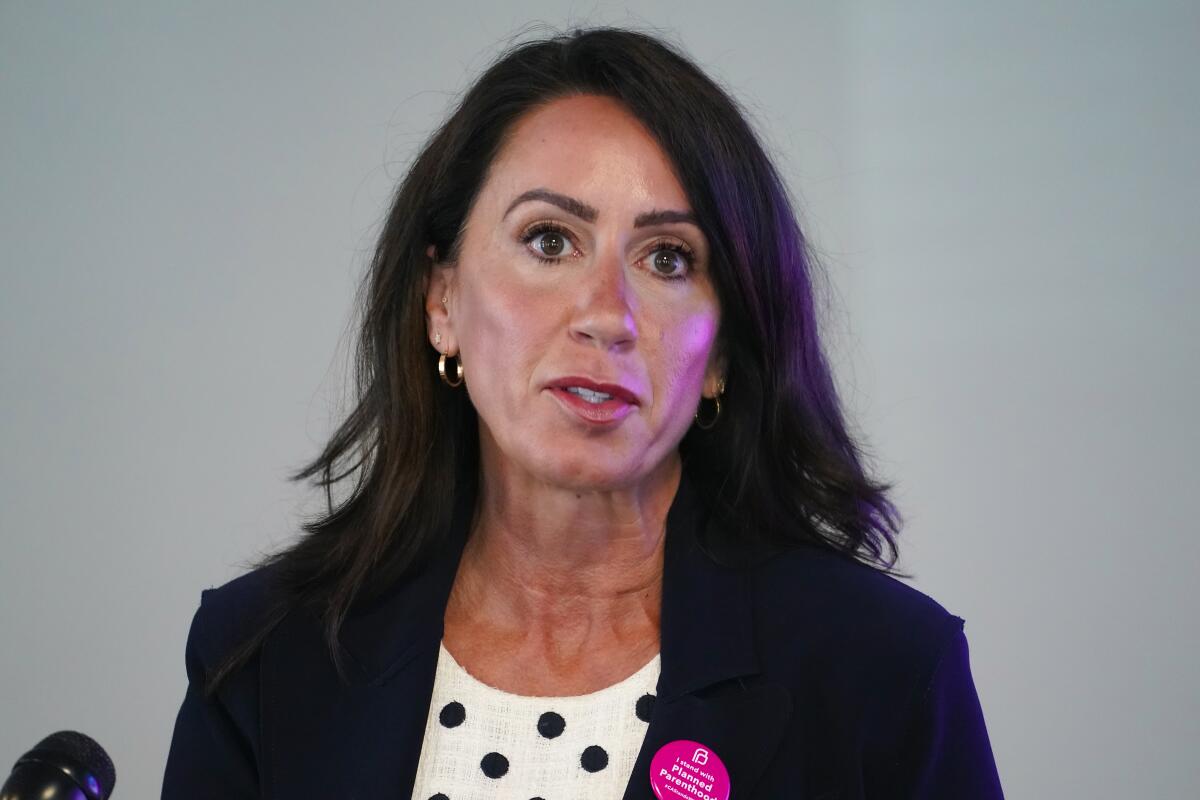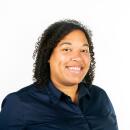Abortion limits in Arizona put pressure on clinics in Southern California

- Share via
SAN DIEGO — Suspension of most abortions in Arizona is already putting significant pressure on medical clinics in San Diego, Imperial and Riverside counties.
Planned Parenthood of the Pacific Southwest, which operates 19 health centers in those three counties, said Wednesday that Arizona women have scheduled 175 appointments at its various locations since the U.S. Supreme Court last week overturned Roe vs. Wade, eliminating the constitutional right to an abortion after almost 50 years.
It’s a massive increase given that just 13 abortions were scheduled by Arizona women during the corresponding four-day period one week earlier.
The influx of appointments from Arizona has increased the overall number of abortions to be performed by the Planned Parenthood Southwest clinics by 77%.
Dr. Antoinette Marengo, Planned Parenthood Southwest’s medical director, said the bulk of appointments made so far have been for termination of pregnancies using medication rather than an outpatient surgical procedure called a vacuum aspiration. Medication is generally effective within the first 11 weeks of pregnancy.
Some, the physician said, are starting to arrive without appointments. One woman, she said, arrived at a local clinic close to the San Diego International Airport from Arizona.
“She had done all of her research and looked at abortion clinics that could serve her closest to an airport,” Marengo said. “She came very humbly and said, ‘I understand that I have the means to travel by air, I’m able to take the time off work, I’m able to pay for this abortion, and I see the gravity of knowing that so many folks don’t have that option.’”
While it is not yet clear how Arizona will ultimately respond to the Roe vs. Wade ruling — legislators are attempting to decide which of the state’s two antiabortion laws on the books will take precedence — the increase in demand in California is likely to continue and will have some unavoidable effect on the wide range of other reproductive healthcare services that Planned Parenthood offers, Marengo said.
“We know that there will be longer wait times and impact in other areas of the care that we provide every day,” Marengo said.
Some are focused on supporting those who choose to come to San Diego County seeking an abortion unavailable in other states.
Though she said Wednesday that she has not yet had any takers, Clairemont resident Jessica Velivis, who has supported out-of-state friends in the past, posted a tweet Friday morning offering to host pregnant women from other states who travel to San Diego to have the medical procedure.
“California is a little bit more progressive as far as our laws and the things that we’re allowed to make decisions for ourselves about,” she said in an interview. “Now that this is much more of a national crisis as of [last week’s] ruling, I felt compelled to make that public.”
Velivis said she’s willing to pick up pregnant women from the airport, provide food and offer them a place to stay while they physically recover from the procedure. She lives with her mom, who Velivis describes as being a like-minded woman, and the two of them would like to be a haven for those in need.
“To make that difficult and life-changing decision to continue without a pregnancy, that’s never an easy thing for a woman to choose, but it should be her choice,” Velivis said. “If I can facilitate that, I would like to.”
Although she had been thinking of starting a nonprofit in the past, Velivis didn’t consider herself to be an activist prior to the court’s decision being leaked in May. The news, however, has given her some clarity on how she might help the community, and specifically women.
“Women are marginalized economically to begin with, and the fact is that it often falls on women to provide all of those child care resources to themselves for their own families,” Velivis said.
San Diego Union-Tribune staff writer Lauren J. Mapp contributed to this report.
More to Read
Sign up for Essential California
The most important California stories and recommendations in your inbox every morning.
You may occasionally receive promotional content from the Los Angeles Times.















